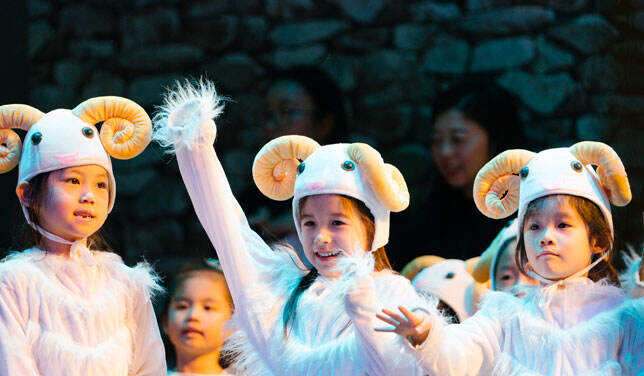From Shakespeare to Shelly, from analysing the classics to interpreting current affairs and events, the exploration of English literature and language is a cornerstone of modern education, as it unlocks a far greater understanding of both the creative and practical ways that we communicate as humans. From basic, everyday interactions, to deep discussions.
Given how broad, deep and endlessly intricate the subject is, our English department is necessarily staffed by teachers whose own love of language and literature spans a great range of influences, passions and learning experiences. In this two-part series, we asked each of its members to share a little about their personal influences and reasons for being passionate about the subject they teach.
Can you name an author who has influenced you as a teacher, or has generally inspired you to explore and teach English?
Ms Montague: I’ve always really enjoyed nineteenth-century literature and Wilkie Collins has always been a particular source of inspiration, as I just fell in love with his writing style and his ability to conjure scenes populated with such vivid, deep and believable characters. The intricacy of his plots and depth of his characters, both linked so cleverly to the issues of the time, showed me exactly what the English language is capable of delivering.
Mr Dooley: Frank McCourt’s Teacher Man is an extraordinary book. The author was a teacher in a tough school in New York and there are some great anecdotes about how he managed classrooms and got troubled children excited about learning.
Ms Bingham: Mary Shelley, because I love teaching Frankenstein. Her story and her background is incredibly inspiring, as she wrote it when she was only 18, during a time of male-dominated publishing. It shows pupils what can be achieved and that age is not a limitation to great writing.
Mr Islam: Roald Dahl has always been an influence since I was a kid and he still very much appeals to my slightly dark sense of humour! I have a deep interest in Russian novels, particularly Dostoyevsky, whose ability to inspire a sort of ruthlessly critical mindset and a constant quest to investigate the way things are definitely feeds into my text selection for teaching. Great writers are often great because they are asking great questions, and ultimately that’s what I want my pupils to do.
Ms Lewis: I really enjoy the work of Haruki Murakami as he allows you to ruminate in the banality of everyday life whilst showing you that, even through the mundane, beautiful and exciting things are happening all the time. I want to show my students that great literature doesn’t have to be limited to the dense descriptions of Dickens (though there’s a place for that too) – a love of literature comes from a connection with a particular author or style of writing. You just need to keep searching in order to find your perfect match!
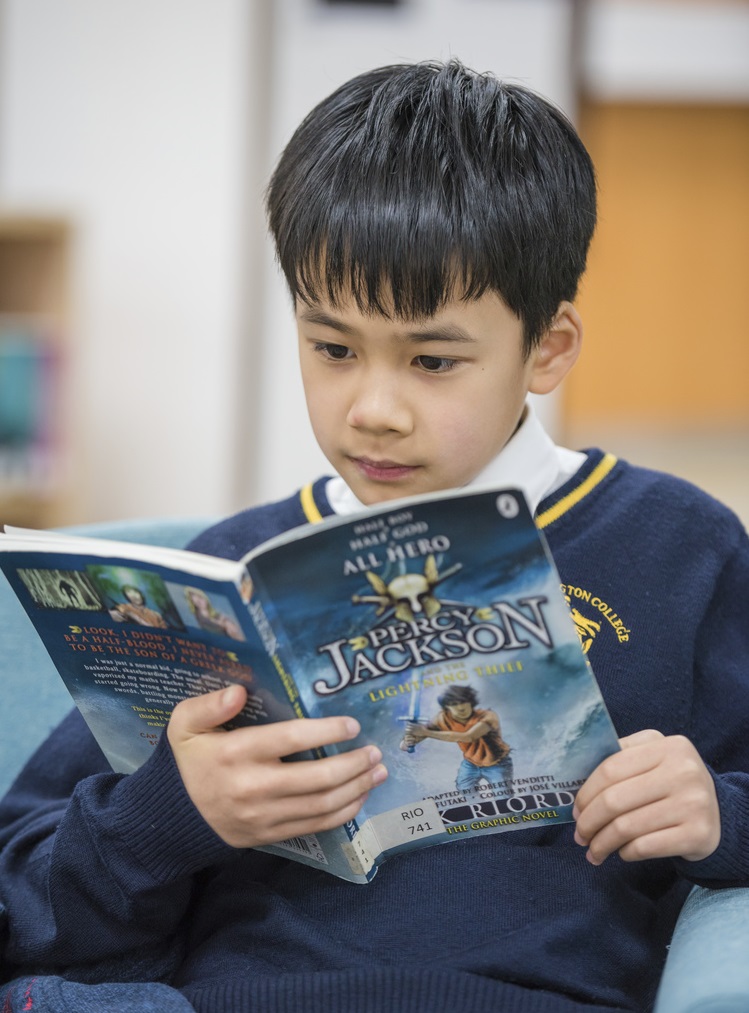 What are you reading right now for pleasure?
Ms Montague: I’ve just finished The Street of Eternal Happiness by Rob Schmitz which was a fascinating look at life in Shanghai, the hopes and dreams of everyday people set against the pressures and difficulties of living in a big city that is changing so quickly. I’m also reading A Line in the Sand by James Barr, which delves into the root causes of the political turmoil in the Middle East and the roles of Britain and France in causing it. It’s outside my usual wheelhouse but I’m trying practise what I preach with my pupils, as I encourage them to read widely across as many genres and different types of writers as possible.
Mr Dooley: Tombland, which is the seventh in the Shardlake Series by C J Sansom. Matthew Shardlake is a hunchback lawyer in 16th Century England and finds himself investigating murders and various criminal connections. I absolutely love it and I’m quite sad because it’s the final instalment in the series!
Ms Bingham: Clock Dance by Anne Tyler – she’s an incredible author who creates exceptionally evocative characters and gives a fascinating exploration of themes like motherhood, aging and love.
Mr Islam: I’m finally tackling Don Quixote, something I’ve been meaning to do for years. It certainly takes a little while to get into it, but it’s absolutely worth the investment. I’m so relieved that it lives up to its classic status, but what surprised me is how joyful it is to read. Its take on modernity, madness and plenty of other important themes makes it an amazing read.
Ms Lewis: I always have about 5 books on the go but at the moment I’m trying to focus on Once Upon A Time in the East by Xiaolu Guo. The memoir explores the impoverished childhood of a girl growing up in rural China where she suffers from both lack of money and love and shows how she manages to thrive in a Western world when everyone else thought she would remain a ‘nobody’ forever. I’m really enjoying reading different texts about China now that I’m living here.
What are you reading right now for pleasure?
Ms Montague: I’ve just finished The Street of Eternal Happiness by Rob Schmitz which was a fascinating look at life in Shanghai, the hopes and dreams of everyday people set against the pressures and difficulties of living in a big city that is changing so quickly. I’m also reading A Line in the Sand by James Barr, which delves into the root causes of the political turmoil in the Middle East and the roles of Britain and France in causing it. It’s outside my usual wheelhouse but I’m trying practise what I preach with my pupils, as I encourage them to read widely across as many genres and different types of writers as possible.
Mr Dooley: Tombland, which is the seventh in the Shardlake Series by C J Sansom. Matthew Shardlake is a hunchback lawyer in 16th Century England and finds himself investigating murders and various criminal connections. I absolutely love it and I’m quite sad because it’s the final instalment in the series!
Ms Bingham: Clock Dance by Anne Tyler – she’s an incredible author who creates exceptionally evocative characters and gives a fascinating exploration of themes like motherhood, aging and love.
Mr Islam: I’m finally tackling Don Quixote, something I’ve been meaning to do for years. It certainly takes a little while to get into it, but it’s absolutely worth the investment. I’m so relieved that it lives up to its classic status, but what surprised me is how joyful it is to read. Its take on modernity, madness and plenty of other important themes makes it an amazing read.
Ms Lewis: I always have about 5 books on the go but at the moment I’m trying to focus on Once Upon A Time in the East by Xiaolu Guo. The memoir explores the impoverished childhood of a girl growing up in rural China where she suffers from both lack of money and love and shows how she manages to thrive in a Western world when everyone else thought she would remain a ‘nobody’ forever. I’m really enjoying reading different texts about China now that I’m living here.
 Why do you feel it’s important for everyone to have a love of literature and language?
Ms Montague: Literature gives you a sense of empathy that is easy to absorb and hard to find elsewhere. If you love reading hopefully you’ll be encouraged to read widely and that offers a great range of benefits, not least the ability to look at life through a variety of lenses – geography, politics, gender, race, culture, exploring all of these factors from different angles will continually inform your view of the world. At the same time, you can also keep challenging and testing your own viewpoints and ideas, to see if they stand up to close scrutiny. Also, reading is just great fun, and that’s not something we focus on enough when we talk about its benefits!
Mr Dooley: It encourages us to question the world around us, which is something we need now more than ever thanks to information overload. We’re bombarded with words and images every day, so it’s essential to not take them at face value and to dig a little deeper.
Ms Bingham: Without it, the world quickly becomes a very dull, lifeless and robotic place, with everyone just shuffling around staring at screens and talking in a very shallow, abbreviated way! Love of language in its simplest form is communicating with the people you love and expressing your feelings, which is something that is essential to all of us.
Mr Islam: With it, you can unlock a lot of the nonsense that surrounds us, like fake news, for example. To figure out the world for yourself, you have to have a solid grasp of both sides of any argument. To be a genuinely critical thinker, you can’t do without a genuine love of language. Great literature lets you walk in other people’s shoes, and that’s when empathy starts to set in.
Ms Lewis: Literature is like philosophy where you can explore the meaning of life, the universe and everything (as Douglas Adams said…) within the confines of a book, sat at home in your living room. It allows you to explore situations and emotions you may not have otherwise experienced and provides you with a greater perspective on other’s opinions and situations.
Why do you feel it’s important for everyone to have a love of literature and language?
Ms Montague: Literature gives you a sense of empathy that is easy to absorb and hard to find elsewhere. If you love reading hopefully you’ll be encouraged to read widely and that offers a great range of benefits, not least the ability to look at life through a variety of lenses – geography, politics, gender, race, culture, exploring all of these factors from different angles will continually inform your view of the world. At the same time, you can also keep challenging and testing your own viewpoints and ideas, to see if they stand up to close scrutiny. Also, reading is just great fun, and that’s not something we focus on enough when we talk about its benefits!
Mr Dooley: It encourages us to question the world around us, which is something we need now more than ever thanks to information overload. We’re bombarded with words and images every day, so it’s essential to not take them at face value and to dig a little deeper.
Ms Bingham: Without it, the world quickly becomes a very dull, lifeless and robotic place, with everyone just shuffling around staring at screens and talking in a very shallow, abbreviated way! Love of language in its simplest form is communicating with the people you love and expressing your feelings, which is something that is essential to all of us.
Mr Islam: With it, you can unlock a lot of the nonsense that surrounds us, like fake news, for example. To figure out the world for yourself, you have to have a solid grasp of both sides of any argument. To be a genuinely critical thinker, you can’t do without a genuine love of language. Great literature lets you walk in other people’s shoes, and that’s when empathy starts to set in.
Ms Lewis: Literature is like philosophy where you can explore the meaning of life, the universe and everything (as Douglas Adams said…) within the confines of a book, sat at home in your living room. It allows you to explore situations and emotions you may not have otherwise experienced and provides you with a greater perspective on other’s opinions and situations.
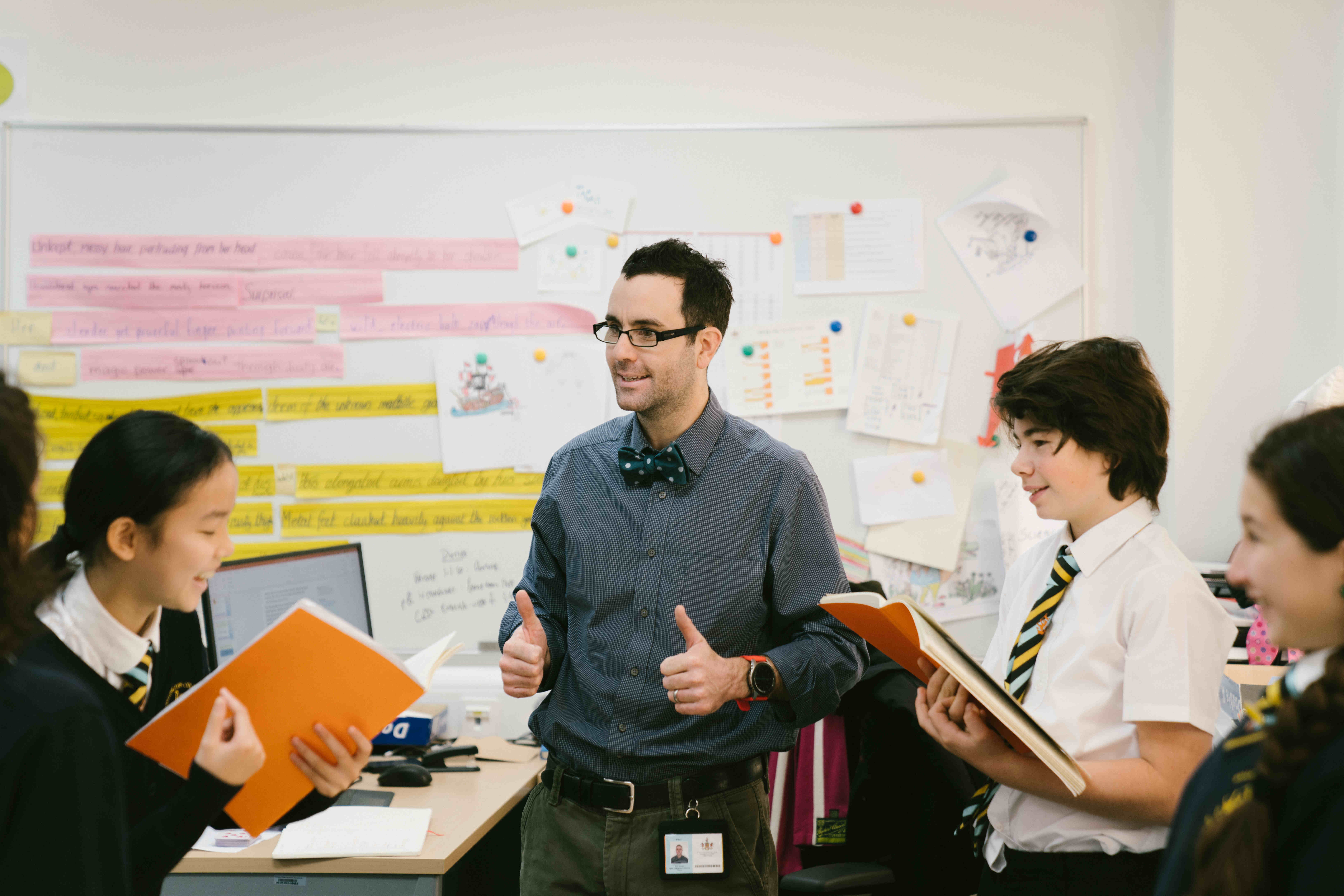 What is it that you really love about teaching English?Ms Montague: I love getting geeky about literature and seeing my pupils do the same. There’s great delight to be had in picking apart a text and looking for all of its hidden meaning and ideas. I also love how personal it is as a subject; you can instantly tell when pupils respond to a piece of writing as it resonates with them.
Mr Dooley: I get to do something truly different every day, which is a quite a rare professional setup. Teaching English is an incredible daily exchange of ideas and perspectives, everyone has their own take to share, particularly pupils, who have enough youthful energy and curiosity to spare.
Ms Bingham: I’m actually quite stubborn and competitive, so I love it when a pupil says they hate Shakespeare, or some facet of studying English. I love being able to show them something they’ve never seen before that will hopefully change their mind.
Mr Islam: I love that my job essentially involves the testing of ideas. I couldn’t do a standard office job, where every task basically leads to the same small set of outcomes. Here, I can surprise my pupils and colleagues, and I can be surprised as well.
Ms Lewis: I love sharing ideas with pupils and hearing about their different perspectives on a text. Though you may teach the same poem several times over the years, the interpretations from the students are always different and this changes your own ideas on the poem and gives it a deeper meaning.
What is it that you really love about teaching English?Ms Montague: I love getting geeky about literature and seeing my pupils do the same. There’s great delight to be had in picking apart a text and looking for all of its hidden meaning and ideas. I also love how personal it is as a subject; you can instantly tell when pupils respond to a piece of writing as it resonates with them.
Mr Dooley: I get to do something truly different every day, which is a quite a rare professional setup. Teaching English is an incredible daily exchange of ideas and perspectives, everyone has their own take to share, particularly pupils, who have enough youthful energy and curiosity to spare.
Ms Bingham: I’m actually quite stubborn and competitive, so I love it when a pupil says they hate Shakespeare, or some facet of studying English. I love being able to show them something they’ve never seen before that will hopefully change their mind.
Mr Islam: I love that my job essentially involves the testing of ideas. I couldn’t do a standard office job, where every task basically leads to the same small set of outcomes. Here, I can surprise my pupils and colleagues, and I can be surprised as well.
Ms Lewis: I love sharing ideas with pupils and hearing about their different perspectives on a text. Though you may teach the same poem several times over the years, the interpretations from the students are always different and this changes your own ideas on the poem and gives it a deeper meaning.
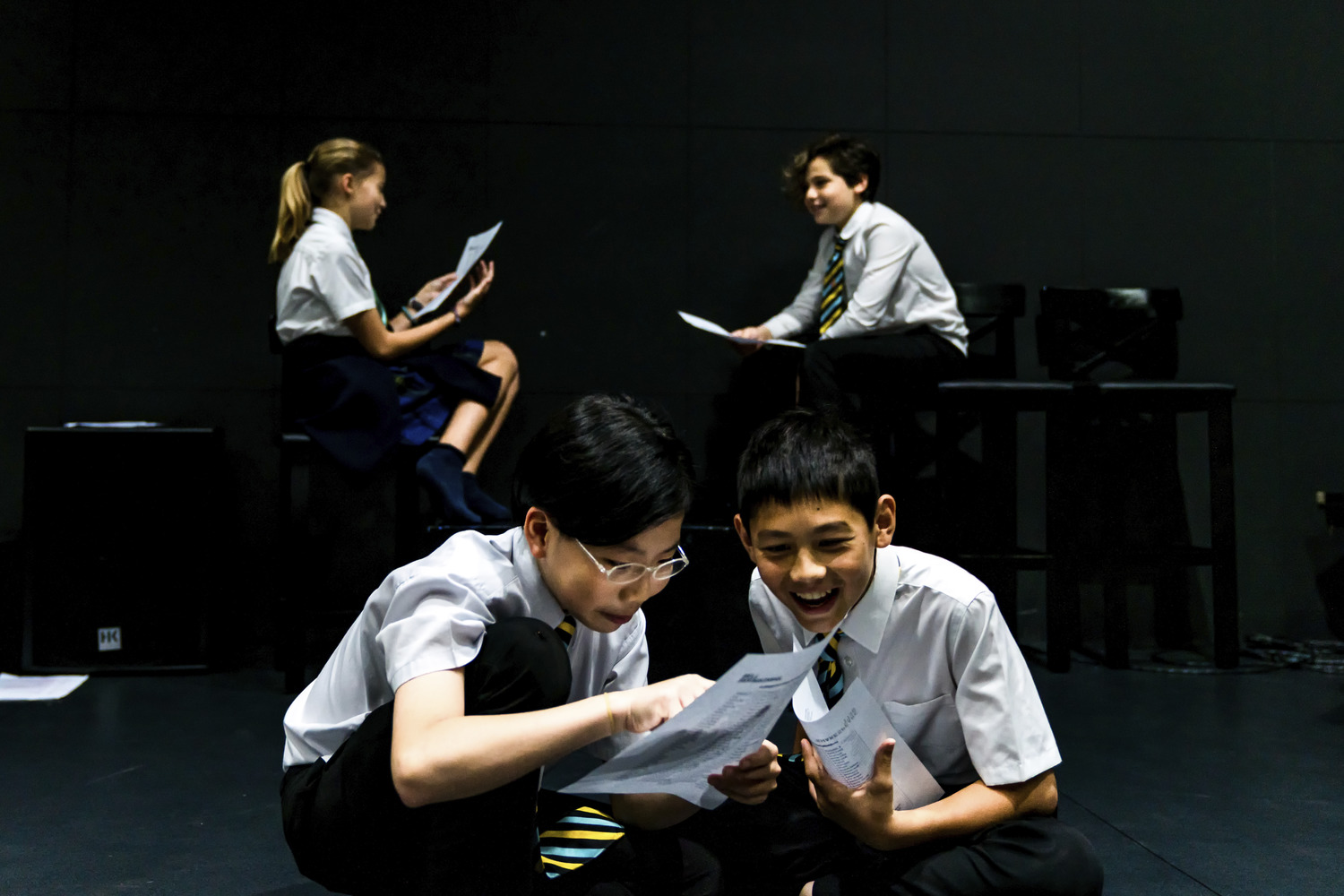 Can you highlight an English activity that you’ve led outside of general classes that your pupils really responded to?
Ms Montague:I’m leading the ‘Shakespeare through Drama’ CCA and I love it because so much of his writing is meant to active; it’s supposed to be accompanied with movement and drama and a zest for expressing different elements of life. This definitely helps pupils unlock some complex ideas in really fun ways.Mr Dooley: My CCA last year was Latin and getting pupils to understand some of the fundamental building blocks of our very odd and complicated language was amazing. For a dead language, they got into it and excited about it so quickly, which was lovely to see.
Ms Bingham: In a previous school I put on Midsummer Night's Dream and performed it out in the school grounds where it was split into four quarters, allowing the audience to see four different interpretations of the characters as the story progressed.
Mr Islam: I’ve got some good responses from my current affairs CCA. Over the week, pupils read the news, find events that interest them and try to look beyond the headlines to dissect the bigger story that’s playing out. Again, this shows the importance of not taking things at face value.
Ms Lewis: Last year I set up the Poetry Pharmacy in Upper Prep, who prescribed poems for pupils and staff who suffered from an ‘ailment’. Whether it was Philip Larkin who helped with the feeling of stagnation, or Hafez who offered some comfort in loneliness, poetry was used as a way to give some understanding to a particular feeling and to act as a written meditation for something that needed attention. Pupils were able to see how to power of words has the potential to be just as potent as medication and how by giving someone the right poem or text can increase their sense of happiness no end.
Can you highlight an English activity that you’ve led outside of general classes that your pupils really responded to?
Ms Montague:I’m leading the ‘Shakespeare through Drama’ CCA and I love it because so much of his writing is meant to active; it’s supposed to be accompanied with movement and drama and a zest for expressing different elements of life. This definitely helps pupils unlock some complex ideas in really fun ways.Mr Dooley: My CCA last year was Latin and getting pupils to understand some of the fundamental building blocks of our very odd and complicated language was amazing. For a dead language, they got into it and excited about it so quickly, which was lovely to see.
Ms Bingham: In a previous school I put on Midsummer Night's Dream and performed it out in the school grounds where it was split into four quarters, allowing the audience to see four different interpretations of the characters as the story progressed.
Mr Islam: I’ve got some good responses from my current affairs CCA. Over the week, pupils read the news, find events that interest them and try to look beyond the headlines to dissect the bigger story that’s playing out. Again, this shows the importance of not taking things at face value.
Ms Lewis: Last year I set up the Poetry Pharmacy in Upper Prep, who prescribed poems for pupils and staff who suffered from an ‘ailment’. Whether it was Philip Larkin who helped with the feeling of stagnation, or Hafez who offered some comfort in loneliness, poetry was used as a way to give some understanding to a particular feeling and to act as a written meditation for something that needed attention. Pupils were able to see how to power of words has the potential to be just as potent as medication and how by giving someone the right poem or text can increase their sense of happiness no end.
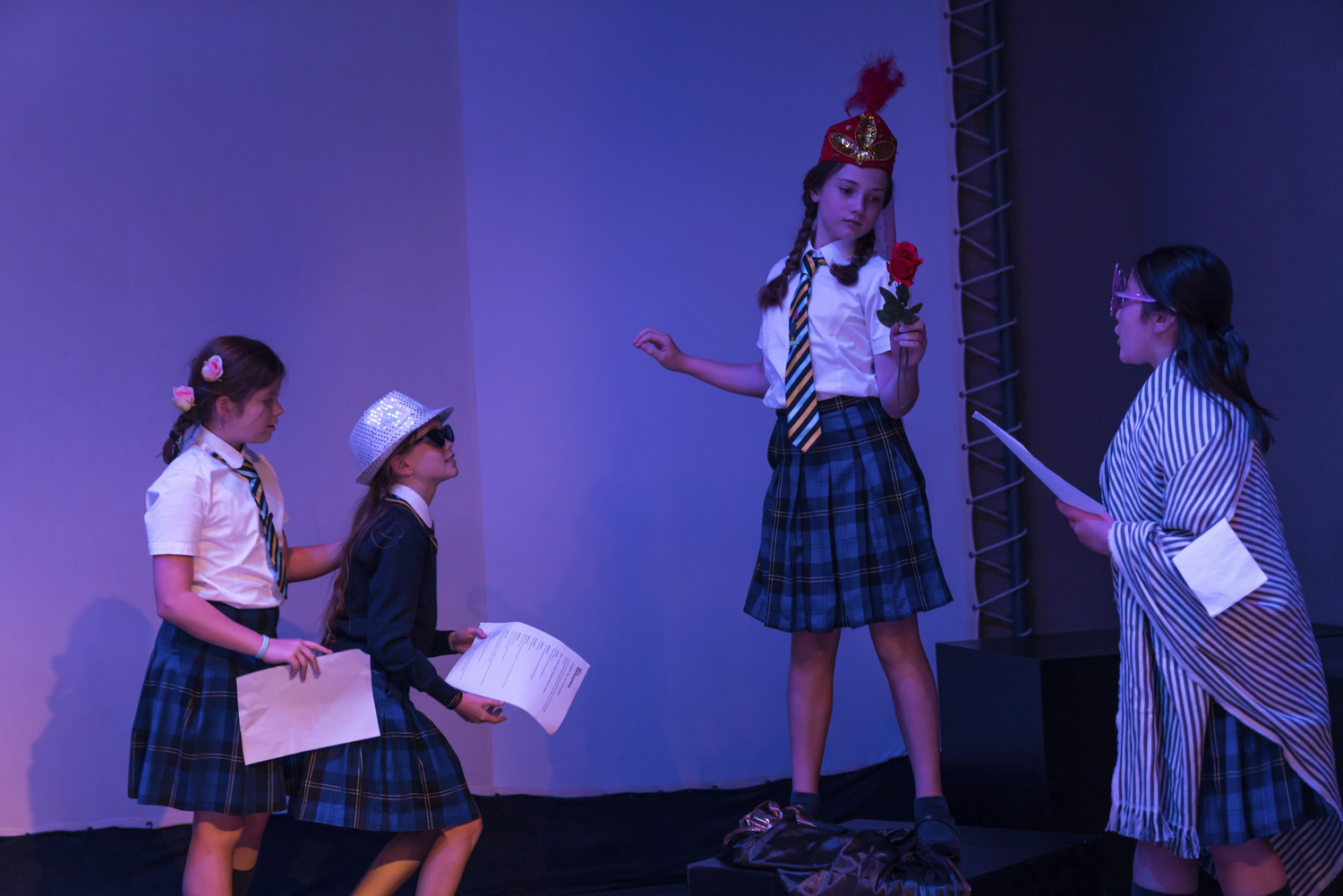 Is there anything you’re doing this year that you’re particularly excited about?
Ms Montague: We’ve got lots of exciting plans in the pipeline for this year and for next year. We’re hoping to develop the work the English departments have already done with the Shakespeare festival and have that running through the year with screenings of Shakespearean plays and workshops with English teachers. We’re also in conversations with a slam poet from England which is a really exciting opportunity for our pupils to play with language and perform their own poetry in lively and fun ways.
Mr Dooley: There’s two big projects that I’m really excited about. The author of Ghosts of Shanghai Julian Sedgwick is coming to work with years 6-8 and year 12 for a week and he’s an amazingly inspirational figure. I also can’t wait for the return of the Shakespeare Festival in March, as we can build on the amazing work done last time.
Ms Bingham: I run a Shakespeare CCA for years 6-8 where we dive into more plays than the traditional ones that they may already be familiar with. It’s been great fun already for them to explore Shakespeare in a more informal, relaxed way.
Ms Lewis: I am really excited for the second Shakespeare Festival in March 2020 where trained actors will be working closely with the Upper Prep and Senior School to help pupils perform key scenes from the plays they are studying – it should be a really fun and educationally inspiring week!
Look out for Part 2 when the other half of the English department will be sharing their influences, passions and opinions on their love they have for the subject they teach.
Is there anything you’re doing this year that you’re particularly excited about?
Ms Montague: We’ve got lots of exciting plans in the pipeline for this year and for next year. We’re hoping to develop the work the English departments have already done with the Shakespeare festival and have that running through the year with screenings of Shakespearean plays and workshops with English teachers. We’re also in conversations with a slam poet from England which is a really exciting opportunity for our pupils to play with language and perform their own poetry in lively and fun ways.
Mr Dooley: There’s two big projects that I’m really excited about. The author of Ghosts of Shanghai Julian Sedgwick is coming to work with years 6-8 and year 12 for a week and he’s an amazingly inspirational figure. I also can’t wait for the return of the Shakespeare Festival in March, as we can build on the amazing work done last time.
Ms Bingham: I run a Shakespeare CCA for years 6-8 where we dive into more plays than the traditional ones that they may already be familiar with. It’s been great fun already for them to explore Shakespeare in a more informal, relaxed way.
Ms Lewis: I am really excited for the second Shakespeare Festival in March 2020 where trained actors will be working closely with the Upper Prep and Senior School to help pupils perform key scenes from the plays they are studying – it should be a really fun and educationally inspiring week!
Look out for Part 2 when the other half of the English department will be sharing their influences, passions and opinions on their love they have for the subject they teach.
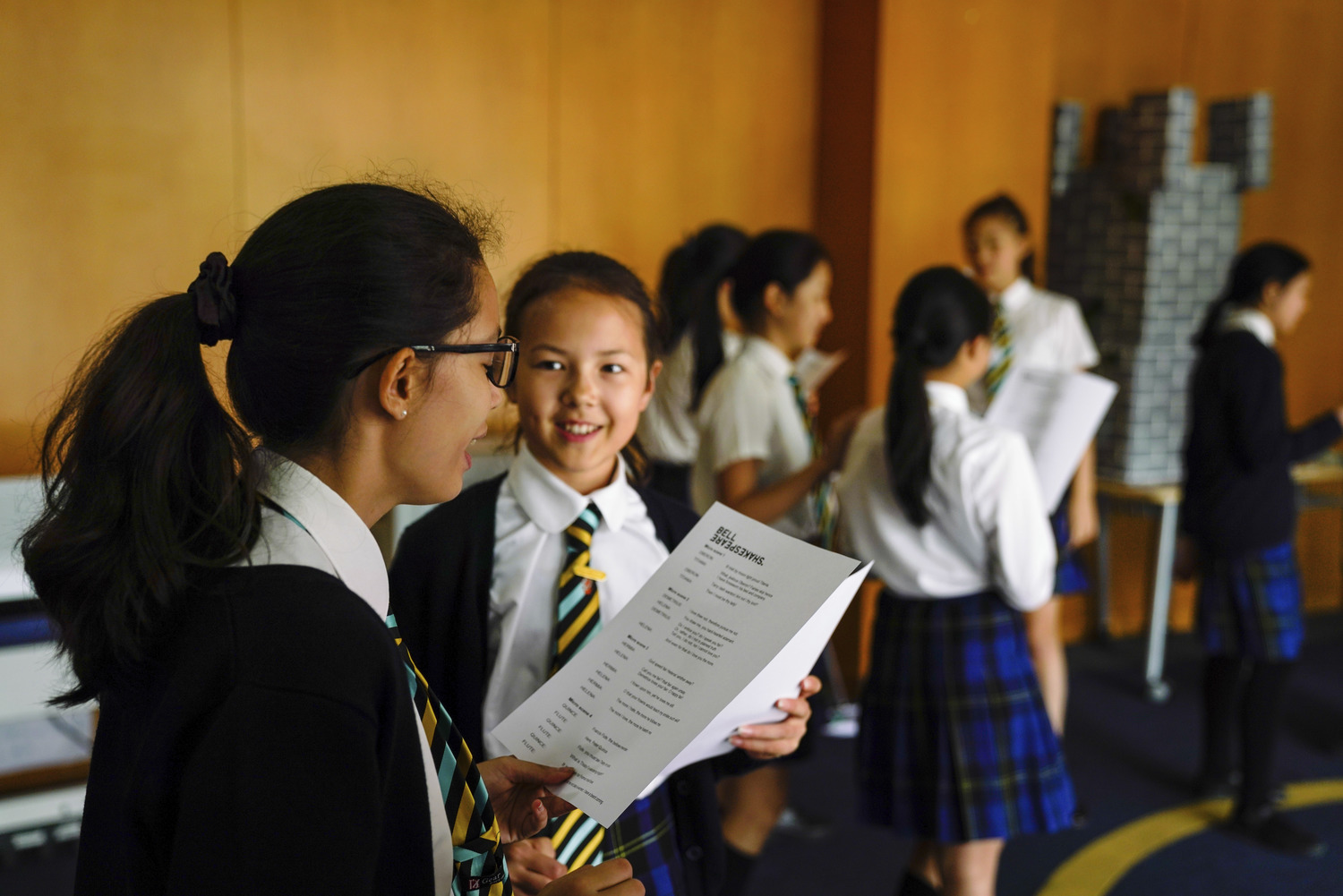
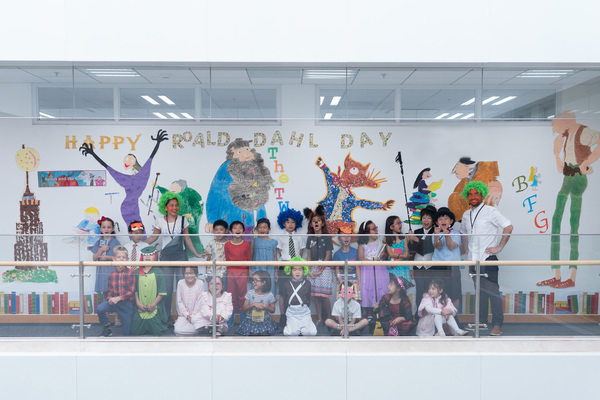

 Why do you feel it’s important for everyone to have a love of literature and language?
Why do you feel it’s important for everyone to have a love of literature and language?

 Can you highlight an English activity that you’ve led outside of general classes that your pupils really responded to?
Can you highlight an English activity that you’ve led outside of general classes that your pupils really responded to?
 Is there anything you’re doing this year that you’re particularly excited about?
Is there anything you’re doing this year that you’re particularly excited about?











